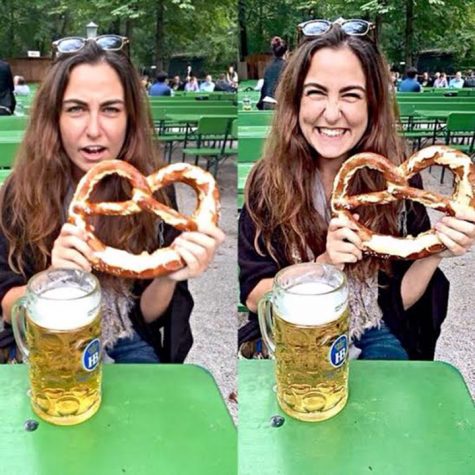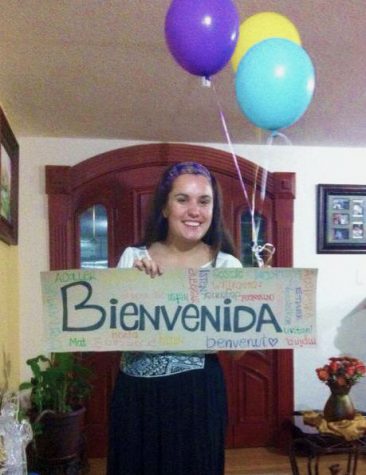KOBLENZ: At last, the other exchange students have arrived!
After two and a half months of living in Koblenz, I have officially started my classes, and with the beginning of the semester, the new international students are finally here! As part of the welcome activities, we have been encouraged to explore the other cultures represented by our fellow exchange students and to address any stereotypes we might have. While my experience here as an American has been a positive one, this week for the first time I’ve encountered some unexpected questions and perceptions about America.
In general, I tell people I’m from Texas and the reactions are usually good; they love to ask questions. (Is Texas really like it is in the movies? Do we still have cowboys?) However, this week with the international events and beginning of my classes, it’s become apparent that I can’t escape American politics, even in Germany. Specifically, many of the students want to hear my opinion on guns. The Germans are very critical of the gun control issue in America now; they just don’t understand it, and since discussing complicated political issues is incredibly challenging in a foreign language, I usually say it’s difficult to explain and move on. They also appear to be more well-informed about American politics than, for instance, British or Turkish politics. Sometimes that’s a good thing and sometimes I wish they would ask me more questions about our culture and fewer about our government.
Even more alarming is that my German friends think McDonalds and Burger King are traditional American food! Our TexMex, barbeque, steak, and real hamburgers are simply nowhere to be found in Germany. Despite the Hamburger’s German name, it appears it left the port in Hamburg for America, leaving no trace in its country of origin. German students have no idea what a hamburger really tastes or looks like—their only experience is with fast foods. Therefore, I have made plans to grill some hamburgers for a big 4th of July party with the other students in my dorm. I only hope I can find some good hamburger buns around here!
On another note, one of the best surprises about studying in Germany is that it is a very diverse country, especially for students. In our international group, there are students from Greece, Jordan, Turkey, Poland, the Czech Republic, Indonesia, Colombia, and of course Texas. I’ve met people from Bulgaria, the Netherlands, Russia, Scotland, Italy, the Philippines, Japan, France, England, and Australia outside that group. Getting to know these other international students has been incredibly interesting and fun, but also one of the biggest challenges I’ve encountered since coming here.
Most of the exchange students don’t speak German. Instead, they all speak English as a second language. I would have never imagined that English is so widely spoken but it seems most students in Europe learn English in school. Since English is their second language, I have to remember to speak slowly with them and to not use slang or obscure phrases, which is harder than I expected. As the only American or native English-speaking student at the Hochschule, up to this point I’ve also spoken more German than English and it’s tiring to constantly switch languages. The first day of orientation week, it was difficult to remember when to speak English and when to speak German. I occasionally blended the languages on accident (“Hi, I’m Caitlin, aus den USA.”), which the other exchange students found very funny. Still, it is nice to have a common language; it’s so much easier to get to know the other students and to hang out with them!
The Turkish students, for example, love to explore Koblenz and go out to eat. We all went out for Italian one night, and they taught me how to say “hello” in Turkish:merhaba or selam. Like American students, they update Facebook all the time and keep tagging me in their pictures. Unlike the Germans, they are always late to the bus but somehow manage to find their way to their destination, albeit half an hour late. They’re going to host a Turkish dinner sometime soon, and it occurred to me that with the exception of the very Germanized Döner, I have no idea what Turkish food is like! It seems that the next several months will be a very enjoyable learning experience for all of us, and hopefully by the end we will leave with a new set of international friends.




